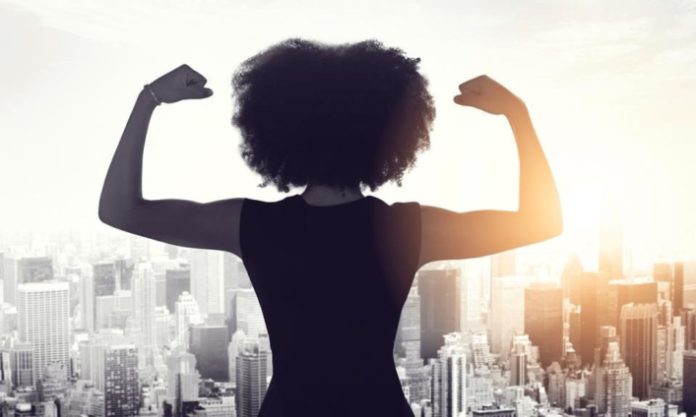
Have you ever been called a “strong woman” before? Do you admire “strong women” in your life? Or have you referred to someone else you admired, like your aunt, as a “strong woman?”
According to the dictionary, “strong” means “the capacity of an object or substance to withstand great force or pressure.” While that may initially make you think of something strong, like the infrastructure of a house, that definition also applies to people.
To be strong is to push past pressure and withstand challenges sent in your way. It doesn’t mean you’re immune to difficulties, but you have the strength to overcome them.
To me, that makes every woman a strong woman.
Throughout history and today, women have faced many adversaries. From voting rights to sexual assault to pay equity, women haven’t had it easy. The things they’ve experienced, we’ve experienced, would be enough to break anymore.
But while it does wear us down, wound us, or even traumatize us, we are not “broken.” We find ways to keep going, get back up again, and decide to push through the entire end. Honestly, the fact that we live our lives proudly and are unashamed of who we are is strength.
That’s why every woman is strong.
Our society has an unhealthy obsession with comparing women to one another. And, as members of society, we’re no exception. Why do we call certain women strong and not others?
Even if it’s not said outright, the fact that “strong” has to be put in front of the word “woman” in the first place implies that most women are weak.
By denoting or making a big deal of a “strong” woman, you’re saying that they’re the exception to the rule. You’re saying that they stand above the average women, most women in society.
Think about it: when was the last time you heard someone say a “strong” man or have called someone a “strong” man yourself? We don’t say that as often as we mention “strong” women. And the main part of gender norms that define men is their strength.
Men are inherently seen as strong. We see them as protectors, physical forces to be reckoned with, and people we can rely on.
Therefore, most people don’t think of calling men “strong” since they consider it the default. In fact, we’re more likely to call out a “weak” man because he’s an exception to the rule (which is a whole other topic to dive into).
We may see the “strong woman” argument as part of feminism, but it’s the opposite.
But Feminism isn’t about tearing other women down; it’s about leveling the plane field, providing equitable opportunities for those who haven’t had the chance in the past. Feminism doesn’t distinguish certain women as strong and others as not.
Instead, feminism wants all women to feel empowered, make the best decisions for their lives, and live how they want to. Feminism sees all women as strong, and it even argues that women shouldn’t have to exert so much strength all the time due to misogyny.
Beyond that, does simply being human not make you strong? You had to survive from conception to childbirth, which in itself can pose several complications.
Every day, we work to grow our minds and provide food on our table, whether in school or at work.
All of us have experienced trauma or will experience at least one tragic event at some point in our lives. Life itself can be hell, yet we push through regardless.
I say all that to bring back my original point: all women are strong.
To be honest, I think women are freaking amazing, and it’s actually laughable that too many people find them anything but. Women have always been powerful and their forces to be reckoned with. We have raised children, changed politics and structures that hinder us, spoken our truth, and lived loudly and lovingly. No one is weak, least of all a woman.
So the next time you hear someone talk about “strong” women, or you find yourself about to use that word yourself, consider removing the adjective. Women are inherently strong, just like anyone on the planet, and it’s past time we recognize that.


